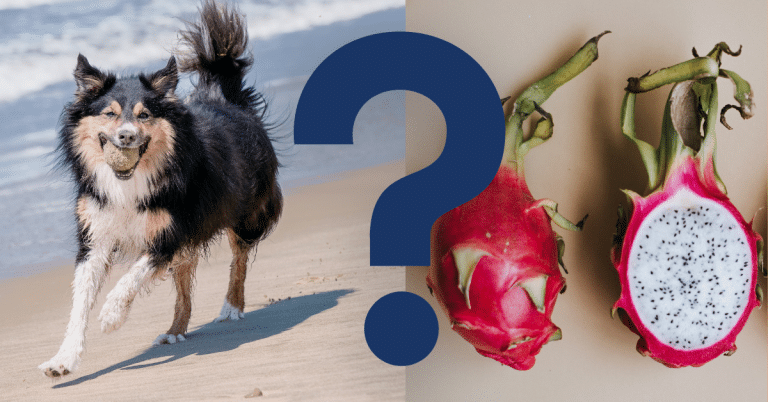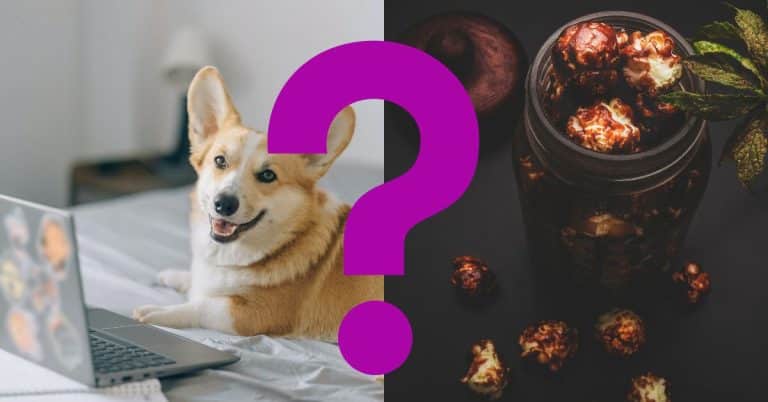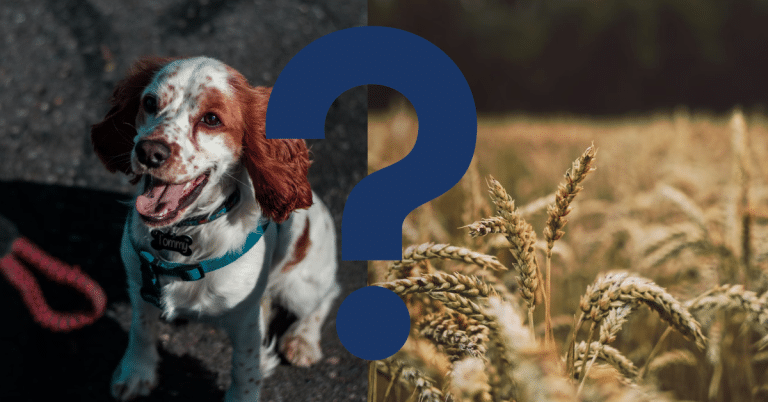Can Dogs Eat Raw Carrots? A Vet’s Opinion

Raw carrots are carrots that are consumed in their natural, uncooked state. They are root vegetables with a crunchy texture and a slightly sweet flavour. Raw carrots are rich in vitamins, minerals, and dietary fibre, making them a nutritious and low-calorie snack. They can be enjoyed on their own or added to salads, but can you feed Raw Carrots to your dog?
Raw carrots can be fed to dogs. They are a healthy and safe treat for dogs, providing them with essential vitamins, minerals, and dietary fibre. Raw carrots can promote dental health, aid in digestion, and serve as a low-calorie snack option. However, it’s essential to cut carrots into bite-sized pieces to prevent choking and monitor your dog while they eat to ensure they chew and digest them properly.
Let’s dive in:
Benefits Of Raw Carrots For Dogs
Feeding raw carrots to your dog can provide numerous benefits due to their nutritional value and natural properties. Carrots are packed with essential vitamins and minerals, including vitamin A, vitamin K, vitamin C, potassium, and dietary fibre. These nutrients contribute to overall well-being and support various bodily functions in dogs. One of the notable advantages of feeding raw carrots to your dog is their positive impact on dental health. The crunchy texture of carrots acts as a natural toothbrush, helping to remove plaque and tartar buildup. Regular chewing on carrots can reduce the risk of dental problems such as gum disease and bad breath. Furthermore, the abrasive action of carrots against the teeth can help massage the gums, promoting better oral health. In terms of digestive health, raw carrots are high in dietary fibre, which supports a healthy digestive system in dogs. Adequate fibre intake aids in regular bowel movements and can help prevent constipation or diarrhoea. The fibre content in carrots also promotes a feeling of fullness, making them a healthy snack for dogs that need weight management or portion control.
Raw carrots also offer antioxidant benefits to dogs. They contain antioxidants like beta-carotene, which protect cells from damage caused by free radicals. These antioxidants help support the immune system, contributing to overall health and potentially reducing the risk of certain chronic diseases. Additionally, the vitamin A content in carrots is essential for eye health in dogs. Adequate vitamin A intake can promote good vision and may help prevent age-related eye problems, such as cataracts or night blindness. Raw carrots are also a great hydration option for dogs due to their high water content. This can be particularly beneficial during hot weather or for dogs that may need to drink more water throughout the day. Including moisture-rich foods like carrots can help supplement their water intake and maintain proper hydration levels. Overall, incorporating raw carrots into your dog’s diet can contribute to their overall health and well-being. They offer a range of benefits, including dental health, digestive support, weight management, antioxidant properties, eye health, and hydration.

How To Safely Give Raw Carrots To Dogs
There are many methods to follow when giving raw carrots to dogs. One standard method is to wash and peel the carrots, then cut them into bite-sized pieces. This makes it easier for your dog to chew and digest the carrots. It’s important to note that some dogs may prefer softer textures, so you can lightly steam or blanch the carrots to make them more tender while retaining their nutritional value. Another option is to grate or finely chop the carrots and mix them with your dog’s regular food. This can be especially useful for picky eaters or dogs who may not readily accept whole carrot pieces. Incorporating grated or chopped carrots into their meals adds a burst of flavour and extra nutrients. If your dog enjoys interactive toys, you can stuff a hollow toy or Kong with raw carrot pieces. This engages their natural instincts to forage and provides mental stimulation. It may take some time for your dog to extract the carrots, promoting slow eating and preventing gulping. Frozen carrot treats can be a refreshing option, particularly during hot weather. Slice the carrots into thin rounds or use a vegetable peeler to create carrot strips. Place them on a baking sheet and freeze until firm. Frozen carrot treats can be a crunchy and cooling snack for your dog. For dogs that enjoy crunching, dehydrated carrot chips or sticks can be a convenient option. Dehydrating carrots removes moisture while preserving their nutritional content.
You can make your own in a food dehydrator or purchase commercially prepared dehydrated carrot treats. Incorporating raw carrots into homemade dog treats is another creative way to introduce them to your dog’s diet. You can find numerous recipes online that include grated carrots as an ingredient. However, be cautious of other ingredients used in the recipe to ensure they are safe for your dog. When introducing raw carrots to your dog’s diet, start with small amounts to see how they respond. Some dogs may have sensitive stomachs, so it’s essential to monitor their digestion and watch for any signs of discomfort or allergic reactions. Always consult with your veterinarian if you have any concerns or if your dog has specific dietary restrictions. Remember that while raw carrots are generally safe for dogs, they should be offered in moderation as part of a balanced diet. Too many carrots can lead to an upset stomach or loose stools due to their high fibre content. As with any dietary changes, it’s best to introduce new foods gradually and observe how your dog reacts. By exploring different ways to feed raw carrots to your dog, you can keep their diet interesting while reaping the nutritional benefits of this healthy snack.
Will Raw Carrots Make A Dog Sick?
There are some precautions and things to keep in mind before you feed raw carrots to your beloved pet dog. Firstly, improper preparation of raw carrots can pose a risk. It’s crucial to thoroughly wash carrots to remove any dirt, pesticides, or other contaminants that may be present on the surface. Unclean carrots can introduce harmful bacteria or toxins into your dog’s system, leading to gastrointestinal issues or food poisoning. Additionally, if the carrots are not appropriately peeled, the skin may be problematic for dogs to digest, potentially causing digestive discomfort or blockages. Another consideration is the size and texture of the carrot pieces you offer to your dog. Large or thick carrot chunks can pose a choking hazard, especially for small or brachycephalic breeds with narrower airways. It’s crucial to cut the carrots into appropriately sized pieces that are easy for your dog to chew and swallow safely. Monitor your dog while they eat to ensure they are not attempting to swallow whole or huge carrot pieces.
While rare, some dogs may have allergies or sensitivities to carrots. Keep an eye out for any signs of an allergic reaction, such as itching, redness, swelling, or gastrointestinal upset. If you suspect your dog has an adverse reaction to carrots, discontinue feeding them and consult with your veterinarian for further guidance. Additionally, excessive consumption of raw carrots can lead to digestive issues in some dogs. Carrots are high in dietary fibre, and an excessive amount of fibre can cause gastrointestinal upset, including diarrhoea or gas. It’s essential to feed carrots in moderation and monitor your dog’s response. If you notice any digestive disturbances, reduce or eliminate the amount of carrots in your diet. Lastly, it’s crucial to avoid feeding your dog carrots that have gone bad or have started to spoil. Spoiled carrots can harbour moulds or bacteria that can make your dog sick. Always inspect the carrots for any signs of rotting, mould, or an unpleasant odour before offering them to your dog. Discard any carrots that appear spoiled or past their prime. By being mindful of proper preparation, size, moderation, potential allergies, and the freshness of the carrots, you can minimize the risk of making your dog sick and safely incorporate raw carrots into their diet.

Vet’s Summary
Feeding raw carrots to your dog can be a safe and healthy option, promoting dental health and digestion and providing essential nutrients. It is crucial to prepare carrots properly, monitor portion sizes, and be aware of any potential allergies or digestive issues. Additionally, incorporating probiotics into your dog’s diet can offer further benefits for their gut health and overall well-being.
Videos To Watch
If you are wondering what related foods are good to give your dog, watch this:
And if you want to know what a dog can NOT eat, watch this:






